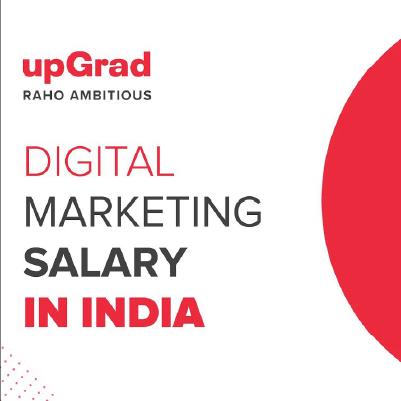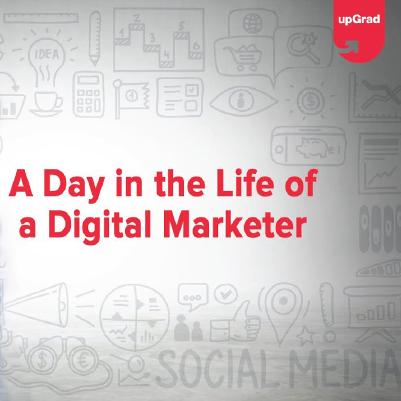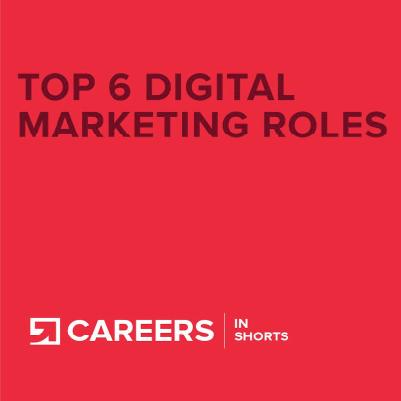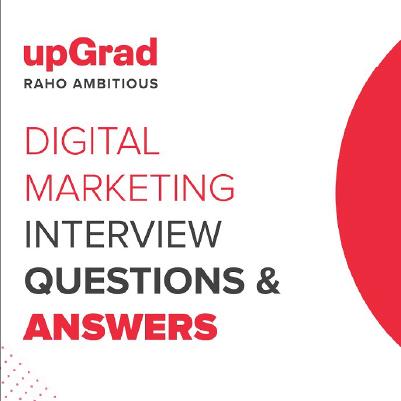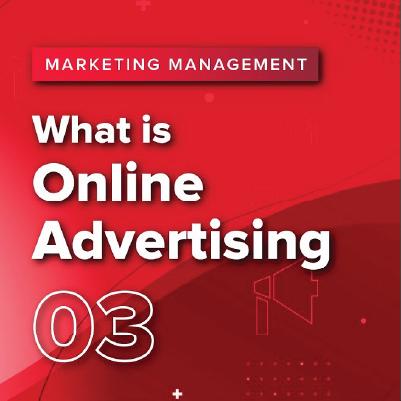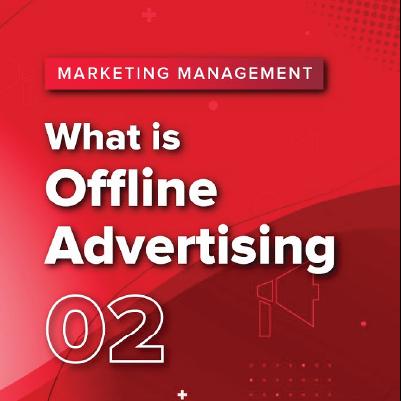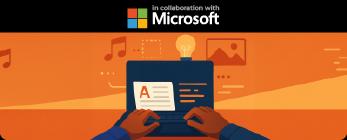All courses
Fresh graduates
- Study abroad
- Offline centres
More
Advertising Courses Online
The growth of the advertising industry in India is the reason behind the accelerating demand for advertising programs and advertising certification.
-5d0f5b994a674e7eae7d8c6a60bb6cb1.jpeg&w=3840&q=75)
Advertising Course Overview
![]()
Advertising has a long history in the marketing world. In whichever direction you look, you will encounter some form of advertisement in the form of banners, commercials, billboards, pop-ups, etc. We have come a long way from the days of traditional advertising to digital advertising. Yet what remains true is its continuing reign at the heart of the marketing industry.
Wherever you go today, businesses are constantly trying to draw your attention. In this competitive space, advertising has become an influential tool for businesses to promote their brand, goods, and services to the audience. Advertising is a form of paid promotion where the sponsor (generally, a business) controls the content and the message. The aim is to reach out to the audience and influence some facet of their attitude and behavior.
Let’s better understand advertising and its importance as a marketing tool.
Digital Marketing Course Instructors
Learn From The Best
Our digital marketing courses online feature expert instructors with years of experience, bringing the industry insights. Get a chance to learn from the best.
5
Instructors
3
Industry Experts
Digital Marketing Projects
Learn by Doing
Experience practical learning with real-world projects in our courses in digital marketing. Get hands-on experience & build your portfolio.
6+
Projects
Placements in Digital Marketing Courses
Our Placement Numbers
After completing any digital marketing course with placement, you can be placed in top companies with competitive salary packages. Get ahead in your career
Top Recruiters








Sucess Stories
What Our Learners Have To Say
Digital Marketing Videos
You Might Like To Watch
Learner Support and Services
How Will upGrad Supports You
Receive unparalleled guidance from industry mentors, teaching assistants, and graders
Receive one-on-one feedback from our seasoned faculty on submissions and personalized feedback to improvement
Our Syllabus is designed to provide you with ample of industry relevant knowledge with examples
Frequently Asked Questions
1. What is Advertising?
Advertising is a marketing technique that uses one-way communication to promote and sell goods and services to existing and prospective customers. They are a form of paid promotion where the advertiser controls the message. The content may be for a general audience or a niche group.
2. How does advertising work?
Advertisements communicate informative content to the audience that generates awareness and educates them regarding brands, goods, and services available in the market. As a result, the prospective consumer can make an informed decision regarding their choices and help boost sales of businesses.
3. What is the objective of advertising?
Advertising has a three-fold objective: to inform, persuade and remind. The content and form of advertisements seek to influence audience action or perception towards a brand and its offerings. The ultimate objective is to promote a positive association between a brand and its customers.
4. What is the importance of advertising?
Advertising performs several functions essential to the growth of a business. It introduces new products, helps build brand image, boosts sales, develops customer trust and loyalty, differentiates products, helps reach a large audience, and expands the consumer base.
5. What are the types of advertising?
There are several different types of advertising based on the medium. These include broadcast advertising, direct mail advertising, print advertising, television advertising, radio advertising, outdoor advertising, social media advertising, display advertising, native advertising, pay-per-click advertising, mobile advertising, retail advertising, podcast advertising, product placement advertising, and guerilla advertising.
6. How has advertising changed?
Advertising has changed with time. The medium of advertising has seen many shifts. The beginning of modern advertisement began with the printing revolution that made newspaper and magazine ads commonplace. The popularisation of mass communication followed, making radio and television ads popular. Ultimately, the birth of the Internet and the widespread use of social media revolutionised online advertising.
7. What are the advantages of advertising?
Firstly, it helps increase awareness about a brand and product/ service. Secondly, businesses can use advertising to set themselves apart from competitors. Third, it educates and informs the audience regarding the brand and its products. Next, advertising can create and boost brand image. Additionally, ads can help to attract potential and existing customers. Sixth, it can increase sales volumes and return on investment (ROI). Further, advertising can effectively reach a wide audience simultaneously as it has a mass reach and supports sales.
8. What are the disadvantages of advertising?
Foremost, advertising is expensive and increases the cost for businesses and consumers. Secondly, advertising can deceive buyers through misleading or false claims which promote inferior products and services. Next, the cost of advertising encourages monopoly and pushes out small businesses. Fourth, ads promote unnecessary consumption and unfulfilled desires. Lastly, advertising can confuse buyers due to the vast number of similar options they are exposed to through ads.
9. How can businesses optimise their advertising campaign?
Advertising campaigns can take several steps to optimise a business. First, identify and target the right audience to optimally utilise the advertising budget. Second, use advertising channels that the target audience use. Further, get the timing of the advertisement right and identify the business's specific goals. Fourth, track and measure the advertising campaign's success using performance metrics. Finally, using re-marketing strategies can help to engage with the right audience.
10. What are some effective advertising techniques?
Advertisers use several effective advertising techniques, including promotional advertising, emotional appeal, bandwagon advertising, repetition, endorsements, facts and statistics, colour psychology, composition, rule of thirds, storytelling, social proof, questioning technique, social media influencers, and nostalgia.
11. What are the important metrics to measure advertising performance?
The metrics to measure advertising performance are return on ad spend (ROAS), reach and impression, bounce rate, engagement rate, conversion rate, cost per acquisition (CPA), cost per click (CPC), and cost per lead (CPL).
12. Is advertising expensive?
Advertising can be expensive as it relies on paid media. Depending on your distribution channels, like TV, social media, and banners. Some platforms are more expensive than others. The advertising budget also includes the advertising professionals you hire and the software and tools you use.
13. What is the difference between Advertising and Marketing?
Advertising and marketing are related to each other but different. Marketing is a long-term process of planning, implementing, and executing activities to promote or sell goods and services to potential and existing customers. Marketing uses different media types: paid media, owned media, and earned media.
Advertising is a part of a business’ marketing strategy. Advertising in the short term supports the marketing goals by promoting the business and its offerings. It is generally the most expensive part of a marketing plan and is typically limited to using paid media.
14. Why is advertising important in marketing?
Advertising is a part of the overall marketing plan and works in coordination with other parts of the marketing strategy. Businesses use advertising as a marketing tool to promote their products and services to a large audience through paid channels to create the desired impact on them. Advertising helps businesses draw attention to their products and services. Ultimately, the objective of both is to increase sales and revenue.
15. What are the roles and responsibilities of an advertising specialist?
Advertising specialists are responsible for planning, developing, executing, and managing the advertising campaign of a business or client. They create and customise advertising campaigns for different platforms. Advertising specialists strategise with the marketing team and the business or client. Additionally, they help to monitor and analyse the performance of ad campaigns. They also provide suggestions and feedback to optimise and improve the performance of future advertising campaigns.
16. What skills are important for an advertising specialist?
For a successful career as an advertising specialist, you must possess the following skills: research skills (market research, customer research), creative skills (storytelling, writing, innovating content), communication skills (collaboration, networking, interpersonal skills), project management skills (coordination, decision-making, problem-solving, budget management, time management), media skills (media planning, media strategy, brand strategy, search engine optimisation, search engine marketing), and marketing skills (customer focus, sales, public relations, analysis).
17. What are some career prospects in advertising?
The scope for career growth in advertising is tremendous. There are several typical career options in advertising. You can be an advertising manager, advertising account executive, advertising copywriter, advertising art director, social media manager, advertising sales representative, advertising photographer, graphic designer, event planner, marketing coordinator, market researcher and analyst, production manager, creative director, public relations specialist- to name a few.
18. What tools can advertising specialists use to assist them in advertising?
Advertising specialists can use several tools to make the process of advertising easier and more effective. The tools can be divided into ten categories: social media marketing tools (Sendible, Stiddle), content marketing tools (Hubspot, Buzzsumo), SEO tools (Ahrefs, Semrush), email marketing tools (MailChimp, Aweber), marketing automation tools (Marketo, Copper), website analytics tools (Google Analytics), and many more.
19. What are some future trends in advertising?
There are several future trends in advertising to look out for. Firstly, ads are becoming more personalised and interactive. Advertising channels are becoming more integrated. Moreover, artificial intelligence (AI) will play a dominant role in advertising. Short videos will be the trending mode of advertising. Authenticity will be valuable in determining advertising content.


upGrad Learner Support
Talk to our experts. We are available 7 days a week, 10 AM to 7 PM
Indian Nationals
Foreign Nationals
Disclaimer
The above statistics depend on various factors and individual results may vary. Past performance is no guarantee of future results.
The student assumes full responsibility for all expenses associated with visas, travel, & related costs. upGrad does not .










%20(1)-d5498f0f972b4c99be680c2ee3b792d7.svg)












-ae8d039bbd2a41318308f8d26b52ac8f.svg)
-35c169da468a4cc481c6a8505a74826d.webp&w=128&q=75)
-7f4b4f34e09d42bfa73b58f4a230cffa.webp&w=128&q=75)




















